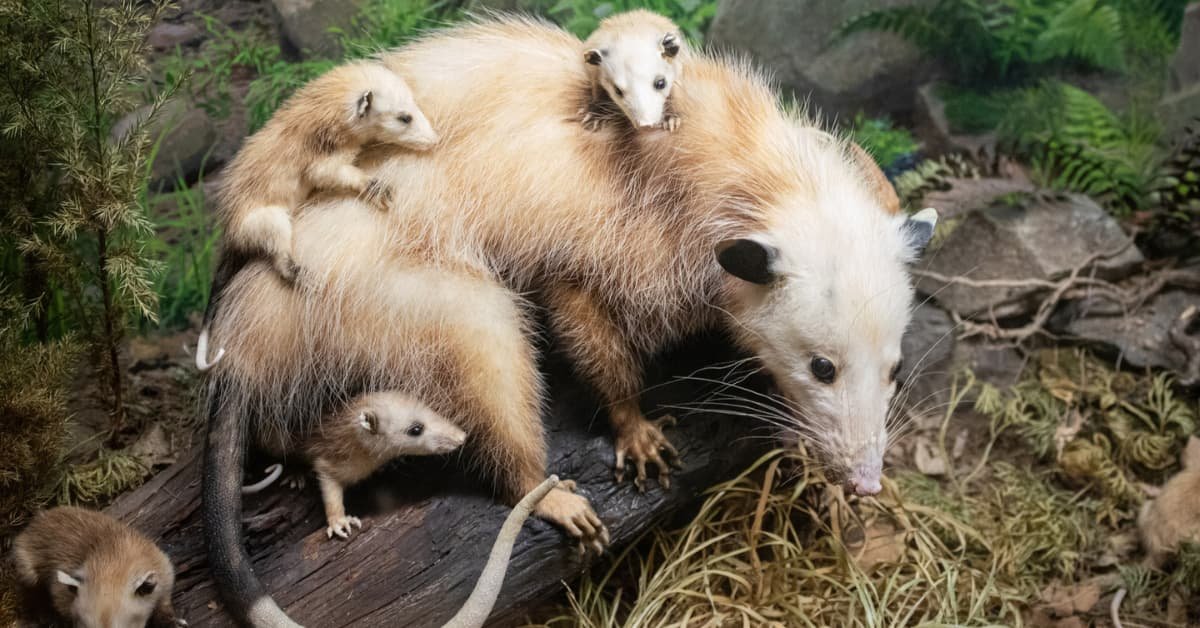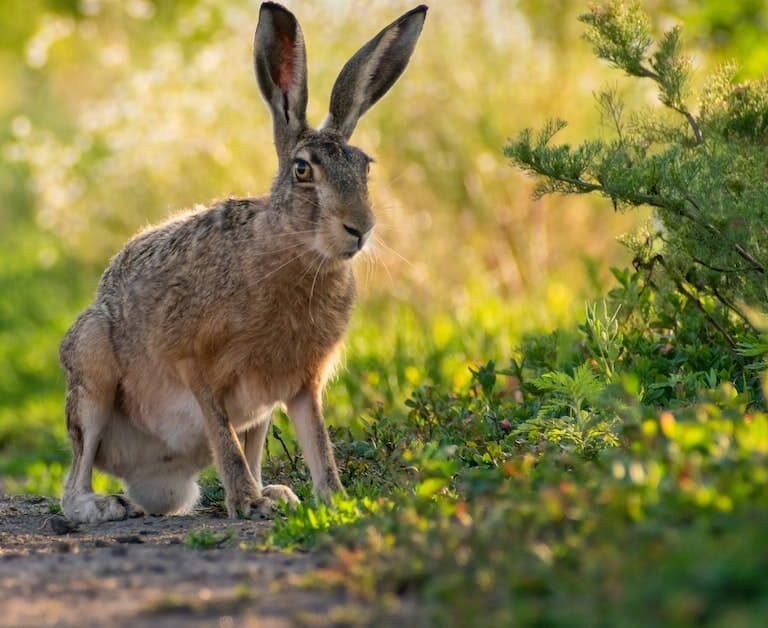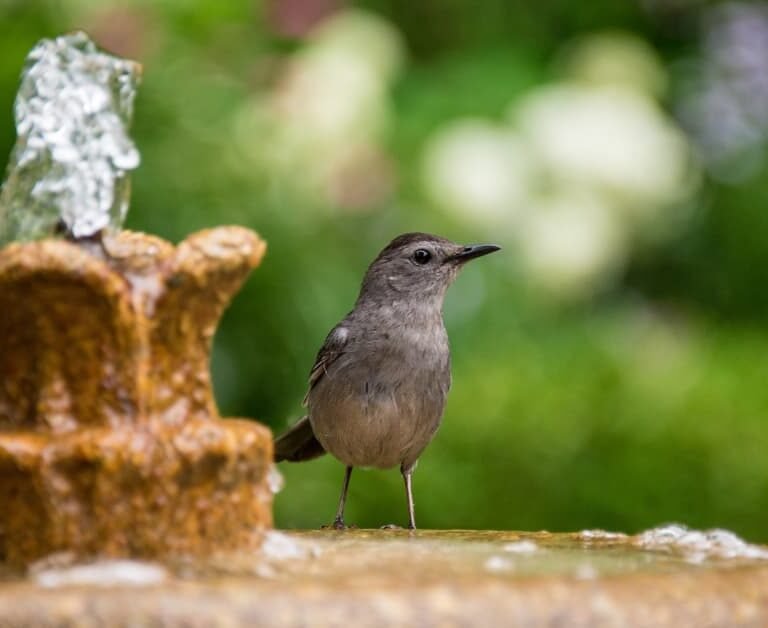
Many of us have encountered possums in our backyard or garden, known for their unique appearance and occasional property damage. These creatures are generally harmless to humans and play an important role in their environment by eating small rodents, insects, and fruits.
One of the most interesting defense mechanisms that possums have developed is playing dead, which has been observed in adult possums as a way to confuse their attacker and buy time to escape. However, it remains unclear whether baby possums are also capable of this behavior.
In this article, we will explore the question “Do baby possums play dead?”, as well as delve into other interesting facts about these fascinating creatures. We will discuss the mechanism behind playing dead, its duration and effects, and the adaptability and reproduction of possums.
Additionally, we will share some interesting facts about possums that you may not have known before. By the end of this article, you will have a better understanding of the behavior and characteristics of these intriguing animals.
Short Summary
- Adult possums play dead as a defense mechanism to confuse their attacker and give them time to escape.
- Baby possums are also capable of playing dead.
- When playing dead, possums are in a comatose state for a half hour to four hours, unable to blink their eyes or feel pain.
- Possums secrete a smelly substance from their anus that many predators avoid, and they almost never transmit rabies due to their lower body temperature.
Possums in General
Possums, are wild marsupials found in backyards or gardens and have a defense mechanism of playing dead when confronted, are beneficial creatures that can eat small rodents, insects, and fruits, making them valuable additions to the ecosystem. Despite their reputation for causing damage outside the property, possums are generally quiet creatures that won’t harm humans. When cornered, they may hiss or growl, but this is usually done as a warning to their attacker.
Backyard encounters with possums can be alarming for some homeowners, especially when the animal appears to be dead. However, this is simply a defense mechanism developed over time to confuse the animal’s attacker, giving the possum enough time to run away. When playing dead, possums enter a comatose state for a half hour to four hours, during which they are unable to blink their eyes or feel pain.
Despite this, they are completely immune to the venom of poisonous snakes such as the pit viper, making them a valuable counterbalance to these dangerous predators.
Playing Dead Mechanism
The phenomenon of playing dead is a defense mechanism developed by certain animals in order to confuse and deter predators. When threatened, possums, including baby possums, have the ability to feign death in order to avoid becoming prey.
This behavior is triggered by a predator’s response, such as a physical attack or the release of a predator’s scent, which causes the possum to enter a state of shock and appear lifeless. While in this state, which can last from 30 minutes to 4 hours, the possum’s body goes through a series of physiological changes. Its heartbeat slows down, its breathing becomes shallow, and it secretes a foul-smelling substance from its anal glands to further deter predators.
This behavior has been observed in both adult and baby possums and is considered to be an effective defense mechanism that allows the animal to avoid becoming prey.
Playing Dead Duration and Effects
During the state of playing dead, possums experience a decrease in heart rate, shallow breathing, and the secretion of a foul-smelling substance from their anal glands. This defense mechanism is triggered when possums feel threatened and cornered by predators or humans. The possum’s body goes into a comatose-like state where they remain still and unresponsive for a period ranging from half an hour to four hours.
Possums are unable to blink their eyes or feel pain during this state, which makes them appear as if they are dead. Possums have developed this survival tactic over time, which confuses their attacker, giving them enough time to escape. This behavior evokes different reactions from people. Some find it fascinating, while others find it disturbing.
The fact that possums can play dead even when they are babies is a testament to their innate instincts for survival. While some people may view the possum’s behavior as a nuisance, it is crucial to recognize that it is an important aspect of their survival tactics. The possum’s ability to adapt to its surroundings and its rapid reproduction rate is perhaps the main reason why its population is still thriving.
Adaptability and Reproduction
One remarkable aspect of the marsupial’s survival strategy is its ability to adapt to changing environments and reproduce rapidly. Possums are known for their ability to thrive in a variety of habitats, from urban areas to forests. They are opportunistic feeders, consuming a wide range of foods, including small rodents, insects, and fruits. This adaptability allows them to survive in areas where other animals may struggle, making them a common sight in backyards and gardens.
In addition to their adaptability, possums have a rapid reproduction rate, with females able to give birth to up to 18 babies in one go, just 14 days after conceiving. Despite this, possum populations are still thriving due to their ability to adapt to changing environments and their maternal care.
Female possums are known for their exceptional maternal care, with the young staying in the mother’s pouch for up to three months before venturing out on their own. This care ensures the survival of the young, contributing to the overall success of the possum population.
Interesting Possum Facts
Did you know that possums have a unique defense mechanism? They secrete a substance from their anus that is highly smelly and stored in a separate gland. This substance is so foul-smelling that many predators avoid them altogether. This is a very useful feature for possums, as they are preyed upon by many predators, including owls, foxes, coyotes, and domestic dogs.
Possums are known for their ability to play dead when they feel threatened. This behavior is not limited to adult possums, as baby possums can also feign death. When baby possums sense danger, they will fall limp and remain motionless. This behavior is a defense mechanism developed over time to confuse the animal’s attacker, giving the possum enough time to run away. The baby possums will remain in this comatose state for a half hour to four hours, unable to blink their eyes or feel pain. It is an incredible adaptation that has helped possums survive and thrive in their environments.
| Interesting Possum Facts | |
|---|---|
| Possums are marsupials and can give birth to up to 18 babies at once. | |
| Possums secrete a highly smelly substance from their anus that many predators avoid. | |
| Possums are able to play dead even when they are babies. | |
| Possums are immune to the venom of poisonous snakes and almost never transmit rabies. |
Despite their unique defense mechanisms, possums still face many predators. However, their adaptability and rapid reproduction rate have allowed them to thrive. These interesting facts about possums demonstrate their importance in the ecosystem and highlight their fascinating behavior, especially when it comes to their ability to play dead, even as babies.
Coyotes And Dog Poop
How long can possums live in captivity?
Possums can live up to 4 years in captivity with proper care, including a balanced diet, a clean and spacious environment, and regular veterinary check-ups. Feigning death is a defense mechanism possums use in the wild to confuse predators, but it is not a factor in their captive lifespan.
Do possums have any natural predators?
In the predator-prey relationship, possums are prey to numerous predators such as dogs, foxes, and owls. To survive, possums have developed various survival tactics, including playing dead, secreting smelly substances, and using their prehensile tails to climb trees.
Can possums swim?
Possums are capable swimmers and can survive in water for short periods of time. They use their prehensile tails to navigate and can hold their breath for up to 6 minutes. Water serves as a means of escape from predators.
How do possums communicate with each other?
Possums communicate with each other through a combination of vocalizations and body language. They are social animals that exhibit complex group dynamics and parenting behaviors. One fascinating statistic is that female possum can give birth to up to 18 babies at a time.
Are possums considered pests in certain areas?
Possums can be considered pests in some areas due to their habit of raiding garbage cans and gardens. However, they also have a positive impact on local ecosystems by eating small rodents and insects. Possums are generally not kept as pets.




